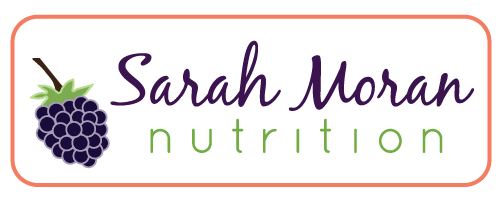NNMC Picking Protein: What About Protein Powders?
/ First, let me start by saying that I can't believe this the last post of the National Nutrition Month Challenge! March sure has flown by. I'd love to hear your feedback about the challenge, how it went for you, and if you would like to see more challenges in the future. This blog is it's best when the content is relevant to you, so, as always, let me know what's on your mind.
With that said, we are closing out this week about protein with some information on protein powders. From whey to soy to pea to hemp, there are a lot of options out there. Most people use them after a workout to boost muscle growth. Because protein is used in the body to build and repair, this makes sense. But is it really necessary? You won't be surprised to hear me say that I think using whole foods is always the best option. I like to have a little protein after a workout, but mine comes in the form of an egg, yogurt, or handful of nuts. Unless you're a professional athlete, I don't think it's worth it. Plus, we know that getting protein isn't difficult if you're eating a variety of nutritious foods and have enough to eat overall. With all that said, many people like adding a scoop of protein powder to a post-workout shake or a breakfast smoothie. If this is you, the important thing is to make sure you're getting a quality product. You don't want anything that has artificial sweeteners, flavors, or colors. But remember, this is still a processed food and, I say, you're always better off sticking to the real thing.
First, let me start by saying that I can't believe this the last post of the National Nutrition Month Challenge! March sure has flown by. I'd love to hear your feedback about the challenge, how it went for you, and if you would like to see more challenges in the future. This blog is it's best when the content is relevant to you, so, as always, let me know what's on your mind.
With that said, we are closing out this week about protein with some information on protein powders. From whey to soy to pea to hemp, there are a lot of options out there. Most people use them after a workout to boost muscle growth. Because protein is used in the body to build and repair, this makes sense. But is it really necessary? You won't be surprised to hear me say that I think using whole foods is always the best option. I like to have a little protein after a workout, but mine comes in the form of an egg, yogurt, or handful of nuts. Unless you're a professional athlete, I don't think it's worth it. Plus, we know that getting protein isn't difficult if you're eating a variety of nutritious foods and have enough to eat overall. With all that said, many people like adding a scoop of protein powder to a post-workout shake or a breakfast smoothie. If this is you, the important thing is to make sure you're getting a quality product. You don't want anything that has artificial sweeteners, flavors, or colors. But remember, this is still a processed food and, I say, you're always better off sticking to the real thing.
What was your favorite part the challenge? The most difficult? Would you like to see more challenges in the future?

 Putting something on a skewer instantly makes it seem fancier. Plus, it can trick you into eating less because the food takes up so much more room on the plate. If you don't have skewers or it isn't warm enough to grill, you can also cook the shrimp in a pan on the stove-top (that's what I did). Shrimp are a great lean protein option and they take on other flavors quickly so no marinating is required. A simple toss will do.
Putting something on a skewer instantly makes it seem fancier. Plus, it can trick you into eating less because the food takes up so much more room on the plate. If you don't have skewers or it isn't warm enough to grill, you can also cook the shrimp in a pan on the stove-top (that's what I did). Shrimp are a great lean protein option and they take on other flavors quickly so no marinating is required. A simple toss will do. Ok y'all, this is possibly the best thing I've come up with to-date. The burgers are moist and flavorful and the avocado-yogurt sauce brightens it up and adds a creaminess without being too heavy. This is going to be a go-to dinner for me from now on and I hope it will be for you too! It's not just something you make for the vegetarian in your life. You'll be fighting them to get your hands on one.
Ok y'all, this is possibly the best thing I've come up with to-date. The burgers are moist and flavorful and the avocado-yogurt sauce brightens it up and adds a creaminess without being too heavy. This is going to be a go-to dinner for me from now on and I hope it will be for you too! It's not just something you make for the vegetarian in your life. You'll be fighting them to get your hands on one.

 It's a common misconception that it's hard for vegetarians to get the protein they need. The truth is, if you're eating a variety of foods including nuts, seeds, dairy, eggs, legumes, and grains, this usually
It's a common misconception that it's hard for vegetarians to get the protein they need. The truth is, if you're eating a variety of foods including nuts, seeds, dairy, eggs, legumes, and grains, this usually  Lemon-Herb Roasted Chicken
Lemon-Herb Roasted Chicken The quality of the food you eat can make a huge difference in your health. This is especially true when it comes to animal products. The methods used to produce dairy products and meat are far from being natural processes and this trickles down to us when we ingest these foods. For example, conventional beef is raised in crowded feet lots where they are fed corn, rather than the grass they are designed to eat. This causes changes in the environment of their digestive tract which allows for the growth of potentially harmful microorganisms, such as E. coli, which would normally not be present. Also, the fatty acid content of the meat is much different from its grass-fed counterparts. In addition, these animals are pumped with antibiotics to fight off diseases that wouldn't be a major concern if the animals weren't raised in such deplorable conditions. The antibiotics also serve a second purpose of boosting growth. It's unknown how this works, but it's effective, so we do it anyway. Then some growth hormones are thrown in for good measure. This is why it is so important to be a picky eater when it comes to your meat and dairy. Choose organic in the grocery store and go the extra mile to seek out local producers who you can talk to directly. They will often use practices that go even farther than the federal organic standards and you'll also be supporting your neighbors and local economy while forging new relationships that help build your community. To find a local producer in your area and start a conversation about the way they raise their food, go to eatwild.com or visit your local farmers market.
The quality of the food you eat can make a huge difference in your health. This is especially true when it comes to animal products. The methods used to produce dairy products and meat are far from being natural processes and this trickles down to us when we ingest these foods. For example, conventional beef is raised in crowded feet lots where they are fed corn, rather than the grass they are designed to eat. This causes changes in the environment of their digestive tract which allows for the growth of potentially harmful microorganisms, such as E. coli, which would normally not be present. Also, the fatty acid content of the meat is much different from its grass-fed counterparts. In addition, these animals are pumped with antibiotics to fight off diseases that wouldn't be a major concern if the animals weren't raised in such deplorable conditions. The antibiotics also serve a second purpose of boosting growth. It's unknown how this works, but it's effective, so we do it anyway. Then some growth hormones are thrown in for good measure. This is why it is so important to be a picky eater when it comes to your meat and dairy. Choose organic in the grocery store and go the extra mile to seek out local producers who you can talk to directly. They will often use practices that go even farther than the federal organic standards and you'll also be supporting your neighbors and local economy while forging new relationships that help build your community. To find a local producer in your area and start a conversation about the way they raise their food, go to eatwild.com or visit your local farmers market. Because protein is so important to our health, there seems to be a lot of concern with getting enough. Well, I'm here to tell you that, if you have enough food to eat and you're getting the variety you should, this won't be a problem. Now, I'm not saying that getting adequate protein is not an issue for some people. Lots of people around the world are struggling with this right now because of lack of access to food or a lack of resources to purchase food. It is a real problem that I do not want to minimize. But, for those of us who have an adequate diet, getting enough protein is usually not a concern.
So how much protein do we need? Well, we're gonna have to do a little math. For the average, healthy adult, the standard is 0.8 grams of protein per kilogram body weight per day. For example, if someone weighs 150 lbs, you divide that by 2.2 to convert to kilograms. This comes out to 68.18 kg. Then, multiply this number by 0.8 to get 54.5 grams of protein per day. That's not a lot. What does that look like in real food? 4 oz lean meat has approximately 28 grams alone (and most meat-eaters eat a much larger portion). A cup of black beans has 15 grams and a cup of milk has 8g. Add in two slices of whole wheat bread (about 3 grams of protein each), and we're at 57 grams of protein total.
Because protein is so important to our health, there seems to be a lot of concern with getting enough. Well, I'm here to tell you that, if you have enough food to eat and you're getting the variety you should, this won't be a problem. Now, I'm not saying that getting adequate protein is not an issue for some people. Lots of people around the world are struggling with this right now because of lack of access to food or a lack of resources to purchase food. It is a real problem that I do not want to minimize. But, for those of us who have an adequate diet, getting enough protein is usually not a concern.
So how much protein do we need? Well, we're gonna have to do a little math. For the average, healthy adult, the standard is 0.8 grams of protein per kilogram body weight per day. For example, if someone weighs 150 lbs, you divide that by 2.2 to convert to kilograms. This comes out to 68.18 kg. Then, multiply this number by 0.8 to get 54.5 grams of protein per day. That's not a lot. What does that look like in real food? 4 oz lean meat has approximately 28 grams alone (and most meat-eaters eat a much larger portion). A cup of black beans has 15 grams and a cup of milk has 8g. Add in two slices of whole wheat bread (about 3 grams of protein each), and we're at 57 grams of protein total.